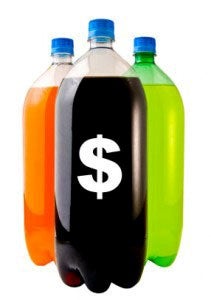 On June 16, despite vehement opposition from the beverage industry, the City of Philadelphia adopted a 1.5 cent per ounce tax on sodas. The tax will be applied to both regular and diet sodas and is predicted to raise over $90 million in the first year. Philadelphia’s tax is widely viewed as an important step towards addressing high levels of overweight and obesity Philadelphia and as laying the foundations for soda taxes in many other US jurisdictions. In this blog, I’ll explore 3 lessons emerging from the passage of Philadelphia’s new tax.
On June 16, despite vehement opposition from the beverage industry, the City of Philadelphia adopted a 1.5 cent per ounce tax on sodas. The tax will be applied to both regular and diet sodas and is predicted to raise over $90 million in the first year. Philadelphia’s tax is widely viewed as an important step towards addressing high levels of overweight and obesity Philadelphia and as laying the foundations for soda taxes in many other US jurisdictions. In this blog, I’ll explore 3 lessons emerging from the passage of Philadelphia’s new tax.
Big Soda is on a relentless quest to undermine soda taxes – but can be beaten
Mirroring their activities in Berkeley and San Francisco, California, the beverage industry unleashed a highly coordinated, heavily resourced campaign against Philadelphia’s proposed tax. In the four months prior to the City Council’s vote, the industry spent over $4 million on radio and television ads designed to turn the public against the tax. Members of the American Beverage Industry funded front group known as Philadelphians Against the Grocery Tax led protests against the tax outside City Hall. Following the passage of the tax, the American Beverage Industry announced it would continue the battle in court. Industry has begun foreshadowing a range of legal arguments, including that the tax runs foul of the Pennsylvania Constitution’s uniformity clause, which requires that all items in the same class must be taxed at the same rate. And while the City’s lawyers appear confident that the soda tax will withstand legal challenges, Big Soda will ensure that the City faces a long and expensive fight.
Narrative matters
Last Thursday’s vote was the third time the Philadelphia City Council had tried to pass a tax on sodas. Indeed, Philadelphia is one of just three US cities to levy such a tax, along with Berkeley, California, and Chicago. More than 40 other cities and states have tried and failed, in large part due to strong industry opposition. Many commentators are attributing Philadelphia’s recent success to Mayor Kenney’s narrative around the proposed soda tax as a source of revenue. Rather than discussing the tax as a public health measure, the Mayor has focused on using revenue from the tax to fund pre-kindergarten and improvements to city infrastructure including recreation centers and libraries. Industry is extremely well-versed at opposing public health-based taxes – claiming that the “Nanny State” should not tell Americans what to eat and drink. The case of the Philadelphia soda tax suggests that casting taxes as an opportunity to raise revenue makes it harder for industry to run its hallmark – and up until now relatively successful – “personal choice” campaigns.
An opportunity to evaluate taxation of diet sodas
In a last minute compromise, Philadelphia’s proposed soda tax was amended to include diet sodas. Ideally, the Philadelphia tax will result in consumers switching to non-taxed beverages – such as bottled water – which would be a public health success. On the other hand, by extending the tax to diet sodas, the City has removed the possibility of the tax encouraging consumers to switch from sugar-sweetened beverages to less harmful artificially-sweetened beverages – which is arguably an easier transition for some consumers.
Overall, the soda tax is good for Philadelphia’s health (and for its coffers). Given that Philadelphia’s tax extends to diet sodas the City – and public health advocates – have the opportunity to monitor and evaluate this configuration of a soda tax to make sure it is resulting in healthier beverage purchases and improved health.



